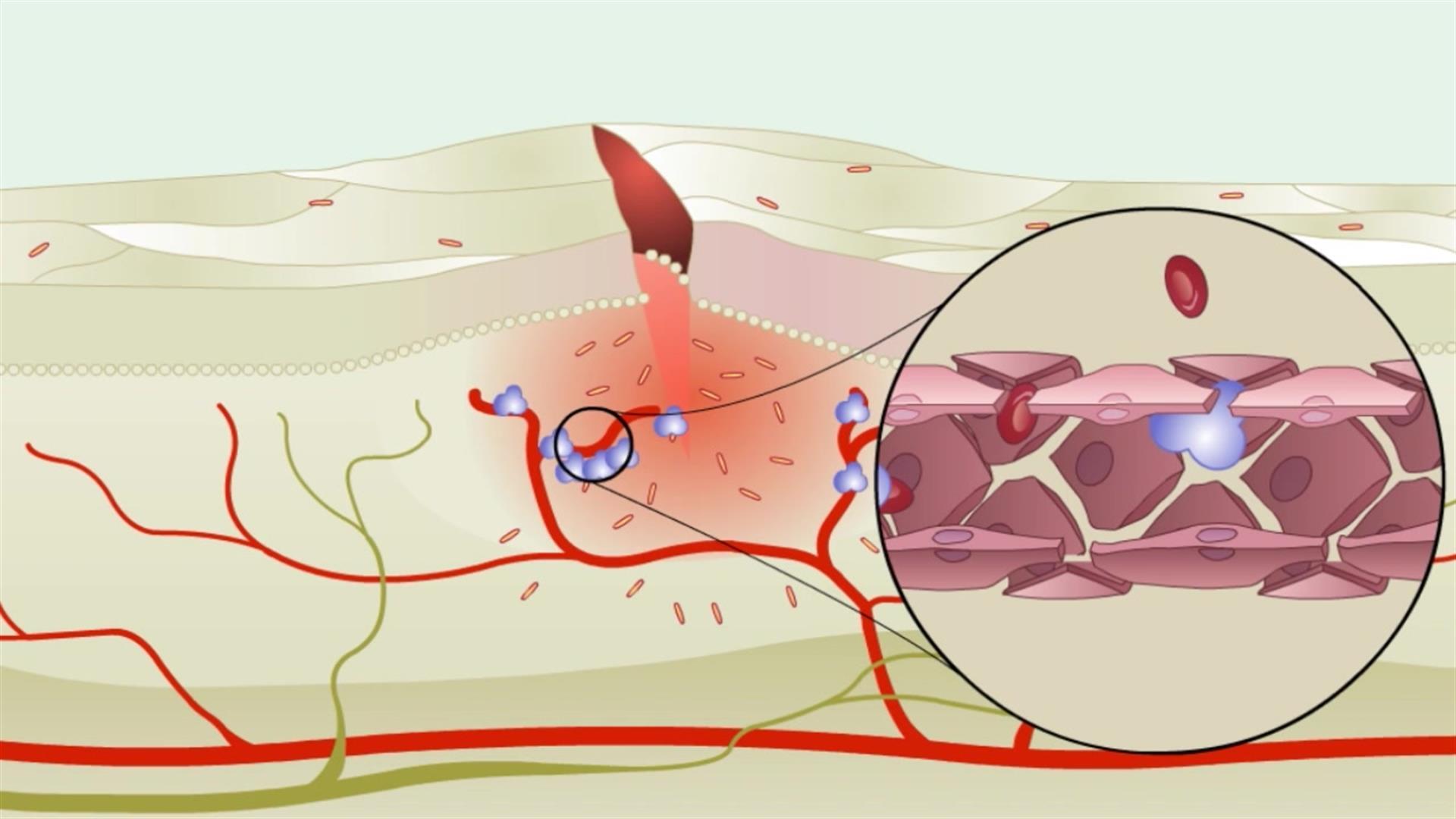
The inflammatory response is a crucial defense mechanism of the body that helps protect us from harmful pathogens and injuries. It is a complex biological process involving various cells, chemicals, and tissues working together to restore homeostasis. Understanding the inflammatory response is not only important for medical professionals but also for anyone interested in the fascinating world of biology.
In this article, we will explore 14 intriguing facts about the inflammatory response. From the historical discovery to the latest research findings, we will delve into the intricacies of this physiological process. So, whether you’re a biology enthusiast or simply curious about how our body fights off infections, join us on this captivating journey through the world of inflammation.
Key Takeaways:
- Inflammation is like a superhero response in our bodies, fighting off bad guys like germs and helping us heal. But too much of it can cause trouble, so it’s important to keep it balanced.
- Our lifestyle choices, like eating healthy, staying active, and managing stress, can help keep inflammation in check. Scientists are also working hard to find new ways to control inflammation and keep us healthy.
What is the Inflammatory Response?
The inflammatory response is a complex biological process that occurs in the body as a defense mechanism against harmful stimuli, such as pathogens, damaged cells, or irritants.
The Five Cardinal Signs of Inflammation
When inflammation occurs, it is typically accompanied by five cardinal signs: redness, heat, swelling, pain, and loss of function.
The Role of Immune Cells
During the inflammatory response, various immune cells, such as neutrophils and macrophages, are recruited to the site of inflammation to eliminate the threat and promote tissue repair.
Histamine Release
One of the key players in inflammation is histamine, which is released by mast cells and causes blood vessels to dilate, increasing blood flow to the affected area.
Cytokines and Chemokines
Cytokines and chemokines are signaling molecules released during inflammation that help to orchestrate the immune response and attract immune cells to the site of injury or infection.
Acute vs. Chronic Inflammation
Inflammation can be categorized as acute or chronic. Acute inflammation is a short-term response that occurs in response to an immediate threat, whereas chronic inflammation is a prolonged and persistent response.
Systemic Effects
Inflammatory responses can have systemic effects on the body, such as fever, fatigue, and changes in appetite, as the immune system releases various molecules to combat the threat.
Inflammatory Diseases
Conditions such as rheumatoid arthritis, asthma, and inflammatory bowel disease are examples of chronic inflammatory diseases in which the body’s immune system mistakenly attacks its own tissues.
Resolution of Inflammation
Once the threat has been eliminated and tissue repair has occurred, the inflammatory response is resolved, often leaving behind scar tissue as a result of the healing process.
Links to Chronic Diseases
Chronic inflammation has been associated with the development of various diseases, including cardiovascular disease, diabetes, and certain cancers.
Anti-Inflammatory Medications
Nonsteroidal anti-inflammatory drugs (NSAIDs), such as ibuprofen and aspirin, are commonly used to alleviate pain and reduce inflammation by inhibiting the production of inflammatory molecules.
Lifestyle Factors
Several lifestyle factors, including diet, exercise, stress levels, and sleep patterns, can influence the body’s inflammatory response and its impact on overall health.
Balancing Inflammation
While inflammation is a necessary process for defending the body, excessive or chronic inflammation can be detrimental. Maintaining a healthy lifestyle and managing stress can help balance the inflammatory response.
Ongoing Research
Scientists continue to study the inflammatory response and its role in various diseases, with the goal of developing new therapeutic strategies to modulate inflammation and improve health outcomes.
Overall, the “14 Fascinating Facts About Inflammatory Response” provide valuable insight into this essential biological process. Understanding the intricacies of inflammation can shed light on how our bodies defend against threats and pave the way for innovative treatments for inflammatory-related diseases.
Conclusion
The inflammatory response is a crucial physiological process that plays a significant role in both protecting and repairing our bodies. It acts as a defense mechanism against pathogens, helps to eliminate damaged tissues, and promotes tissue healing. Understanding the fascinating facts about the inflammatory response can provide valuable insights into how our bodies combat infections and maintain homeostasis.
From the recognition of danger signals to the release of chemical mediators, the inflammatory response is a precisely coordinated cascade of events. It involves various cells and molecules working together to mount an effective defense against harmful invaders.
By exploring the complexities of the inflammatory response, we gain a deeper appreciation for the remarkable abilities of our immune system. This knowledge can also aid in the development of new therapeutic strategies for managing inflammatory disorders and improving overall health.
FAQs
Q: What triggers the inflammatory response?
A: The inflammatory response can be triggered by various factors such as infection, injury, toxins, or autoimmune reactions. These triggers activate the immune system to initiate the inflammatory cascade.
Q: What are the symptoms of inflammation?
A: Common symptoms of inflammation include redness, swelling, heat, pain, and loss of function in the affected area. These manifestations are the body’s response to the increased blood flow and immune cell recruitment during the inflammatory process.
Q: Is inflammation always a bad thing?
A: No, inflammation is a natural and necessary process for the body’s defense and repair mechanisms. However, chronic or excessive inflammation can contribute to various diseases, including autoimmune disorders, cardiovascular diseases, and certain types of cancer.
Q: How long does the inflammatory response last?
A: The duration of the inflammatory response varies depending on the extent and nature of the injury or infection. Acute inflammation can last from a few hours to a few days, while chronic inflammation can persist for weeks, months, or even years.
Q: Can diet and lifestyle affect the inflammatory response?
A: Yes, certain dietary and lifestyle factors have been linked to the modulation of inflammation. Consuming an anti-inflammatory diet rich in fruits, vegetables, whole grains, and healthy fats, and maintaining a balanced lifestyle that includes regular exercise and stress management can help to reduce chronic inflammation.
Inflammation plays a vital role in our body's healing process, but when it becomes chronic, it can lead to various health issues. If you're curious about managing inflammation, consider exploring the benefits and risks of anti-inflammatory drugs like NSAIDs. Our immune system is closely linked to inflammatory responses, so understanding how it functions can help you maintain better health. For more in-depth knowledge, dive into our article on surprising facts about inflammation, which covers a wide range of topics related to this fascinating biological process.
Was this page helpful?
Our commitment to delivering trustworthy and engaging content is at the heart of what we do. Each fact on our site is contributed by real users like you, bringing a wealth of diverse insights and information. To ensure the highest standards of accuracy and reliability, our dedicated editors meticulously review each submission. This process guarantees that the facts we share are not only fascinating but also credible. Trust in our commitment to quality and authenticity as you explore and learn with us.


